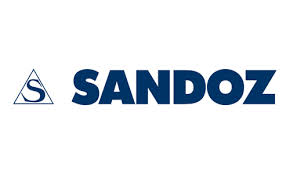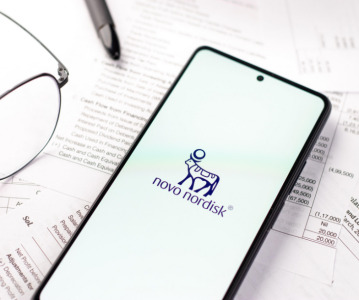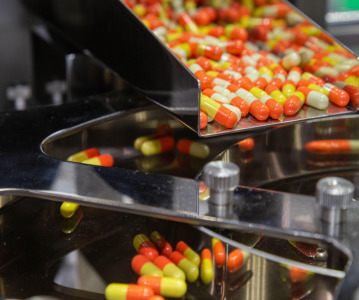Sandoz announces plans for five major global biosimilar launches by 2020

Investments of more than USD 1 billion in state of-the-art biomanufacturing facilities, backed by industry-leading capabilities as part of Novartis, positions Sandoz to deliver biosimilars at unprecedented scale.
Sandoz plans to launch five biosimilars of major oncology and immunology biologics across key geographies by 2020, aiming at broadening access to these treatments for more patients. Biosimilars, which are clinically comparable to their reference biologics and introduced following loss of patent exclusivity, represent a significant opportunity for health care savings globally.
The five launches will be enabled by an aggressive regulatory submissions strategy of 11 filings over a 3-year period (2015–2017). Furthermore, plans to invest over USD 1 billion, between 2010 and 2020, in state-of-the-art biomanufacturing facilities in Schaftenau and Kundl, Austria are expected to ensure that Sandoz’ biosimilar medicines reach patients and healthcare professionals around the world.
"Despite the impressive medical advances of the past century, access to medicines remains the single largest unmet healthcare need in developed and developing countries alike,” said Richard Francis, Division Head and CEO of Sandoz. Francis continued: “Biologics have revolutionized treatment of many disabling and life-threatening diseases, but far too many people who need these medicines are not able to access them. At Sandoz, we are committed to significantly broadening patient access to biologics with a series of major biosimilar launches over the next few years.”
Subject to regulatory requirements and approvals, Sandoz’ upcoming launches will include biosimilars of Enbrel (etanercept), Humira (adalimumab), Neulasta (pegfilgrastim), Remicade (infliximab) and Rituxan (rituximab). Together these biologics generated approximately USD 43.6 billion in 2015 global sales. Sandoz has already announced six of the 11 planned filings in the last 12 months — the most recent being EMA file acceptance of biosimilar rituximab (May 2016). Sandoz’ early-stage pipeline has additional assets in oncology, as well as other specialty therapeutic areas with plans to start new programs every year.
Building on decades of experience
Sandoz has a strong first mover advantage having launched the world’s first biosimilar (Omnitrope in the EU, 2006), the first biosimilar in Japan (Somatropin BS S.C., 2009) and the first biosimilar approved under the new regulatory pathway in the US (Zarxio, 2015). It has significantly grown its biosimilar business and continues to deliver double-digit growth for its three in-market medicines. Biosimilars form a significant part of Sandoz’ biopharmaceutical business which had 2015 sales of USD 772 million. Sandoz’ future biosimilar offerings are expected to see it expand further in oncology and enter the immunology space – two therapy areas where its products are set to benefit from being part of a broader Novartis portfolio.
USD 1 billion earmarked for capacity expansion program in Austria
Sandoz, which started developing and manufacturing biologics in 1980, has built industry-leading capabilities in biopharmaceutical development and production. Over the period of 2010 to 2020, capital expenditures of USD 1 billion have been earmarked for expanding the state-of-the-art biomanufacturing facilities required to supply the growing patient base benefitting from Sandoz biosimilars and Novartis novel biological drugs. As part of the Novartis Group, Sandoz has access to deep therapeutic area capabilities in clinical development and commercialization as well as manufacturing know-how, helping to deliver on its pipeline assets.
Related News
-
News Pharmapack Awards 2024 Patient-Centric Design Award Winner – Dr Ferrer BioPharma
The 2024 Pharmapack Awards celebrated the best in innovation and design for the pharmaceutical packaging and drug delivery industry on January 24, 2024. -
News Women in Pharma: Minding the Gap at Pharmapack 2024
2024 marks the first year Pharmapack will host a Diversity track dedicated to bridging the gap within the pharmaceutical packaging and drug delivery sector. The track includes a panel discussion on 'Enabling Diversity in the Workplace,' focused... -
News Pharmapack Awards 2024 - Celebrating Packaging and Drug Delivery Innovation
The 2024 Pharmapack Innovation Awards ceremony celebrated the best in pharmaceutical packaging and drug delivery innovation at all levels. The awards were held on January 24, 2024 at the Paris Expo Porte de Versailles. -
News 2024 Pharma Industry Trends Outlook: Collaboration, Market Maturity, and Digital Futures
The annual CPHI Online 2024 Pharma Trends Outlook, in partnership with Arvato Systems, identifies 12 key industry trends shaping the life sciences industry in the coming year. -
News New Novo Nordisk AI hub for drug discovery to open in London, UK
Danish pharmaceutical giant Novo Nordisk will be opening an AI-based research facility in the heart of London to advance drug discovery operations. -
News BioNTech to begin mRNA vaccine manufacturing in Rwanda by 2025
German biotechnology company BioNTech has stated their intentions to begin production at their mRNA vaccine factory in Rwanda by 2025, which will mark the first foreign mRNA vaccine manufacturing site on the continent of Africa. -
News Women in Pharma: Looking back on 2023 and moving forward to 2024
In this monthly series, we interview women from across the pharmaceutical industry and supply chain to discuss the importance of gender diversity in healthcare, the workplace, and beyond. -
News CPHI Barcelona 2023: Partnering for Success – Managing Outsourcing Relationships to Optimise Manufacturing Operations
During CPHI Barcelona 2023, insightful content sessions offered attendees the chance to explore trending topics with expert speakers and panellists. Here, we summarise what the pharma industry and supply chain are talking about the most.
Position your company at the heart of the global Pharma industry with a CPHI Online membership
-
Your products and solutions visible to thousands of visitors within the largest Pharma marketplace
-
Generate high-quality, engaged leads for your business, all year round
-
Promote your business as the industry’s thought-leader by hosting your reports, brochures and videos within your profile
-
Your company’s profile boosted at all participating CPHI events
-
An easy-to-use platform with a detailed dashboard showing your leads and performance







